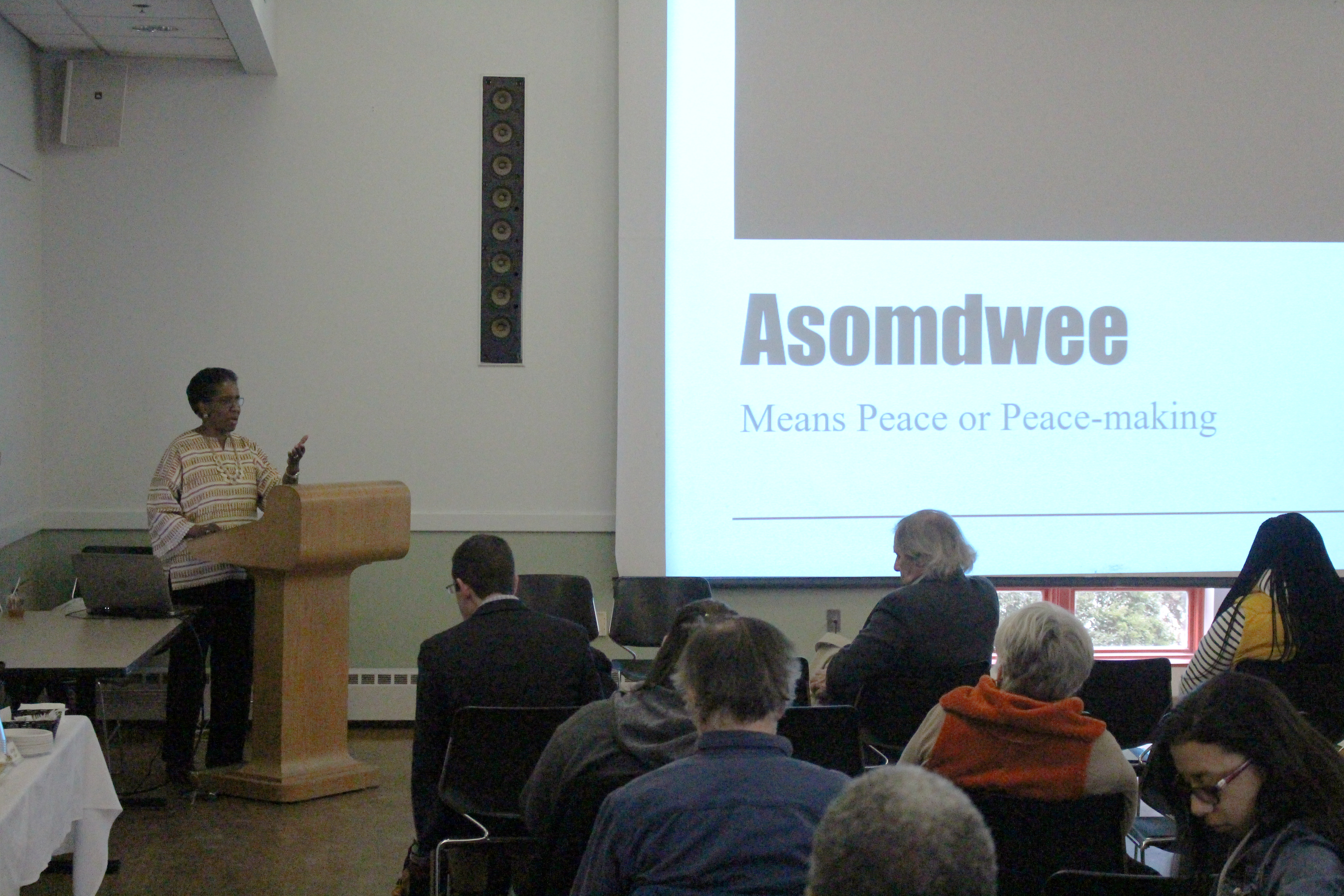Dr. Vanessa Quainoo delivered a speech to the community titled “Asomdwee” meaning peace in Twi. Photo by James McIntosh.
The University of Rhode Island’s Harrington Faculty Forum series featured Dr. Vanessa Quainoo, who delivered a speech titled ‘Asomdwee,’ on Wednesday at the Multicultural Center.
Quainoo is an associate professor of communication studies and Africana studies for the Harrington School of Communication and Media. Her presentation and research focused on ‘The Praxis of Peace in West African Conflict Management.’
Before diving into the details of her research, she elaborated on certain keywords crucial to understanding her study, such as the difference between peace-making and peace-building as well as conflict resolution and conflict management.
‘Asomdwee’ means peace in the Ghanaian local language, Twi,” Quainoo said. “Peace is not defined as the absence of war, but also as the presence of the conditions for a just and sustainable balanced life.”
The Asomdwee study is the culmination of 10 years of observations and interviews of conflict negotiation within the context of interpersonal conflict management within families in Ghana, West Africa. Over the decade long research, she stayed in Ghana for six weeks, lived and interacted with the local communities to observe and record conflict.
“We’re not necessarily looking for resolution,” Quainoo said. “My study was more interested in how people manage conflict and there’s a reason for that because early on in the study I found that in the context of Ghana, quickly hurrying to a resolution was not necessarily the value. It was the process of working through the conflict that was valued much more.”
She used ethnographic study for her observations and and narrative analysis to interpret the data she collected.
“The uniqueness of this study is the focus of peacemaking within the context of interpersonal communication,” Quainoo said. “This is distinctive because most conflict management studies, involving international subjects, focus on military strategies, nation building, intranational building and/or international peace.”
The summary of her study focuses on four different praxes, namely the praxis of respect, The Eldership, The Circle meeting, and The A.R.C.H.
“A.R.C.H. stands for a balance between Actions, Results, Completion and Harmony,” Quainoo said. “This provides the balance within interpersonal relationship and forms the basis of conflict management.”
Quainoo’s area of study is in West African and African rhetoric. She was inspired by the relationships in the Ghanaian community while traveling to Ghana with her husband.
“When I was travelling, I started noticing the relationships,” Quainoo said. “That was fascinating so I was looking for research on that but I couldn’t find anything. So I thought maybe there needs to be some research done about this.”
Students from her class also volunteered to answer questions regarding conflict management in their culture.
“We are taking her public speaking class and she is really good,” Tarlo Troh, a sophomore said. “I felt like it was very relatable and different because she is not even from the culture so it was interesting to see someone outside the culture elaborate on it so well.”
Quainoo also drew a comparison of between the conflict management styles in the West, specifying that time is of utmost importance.
“I was totally unsurprised that it as an amazing talk,” Scott Kushner, assistant professor of communication studies, said. “She did an intricate work of weaving together some concepts that are unfamiliar to me as an American, like addressing some contemporary questions as to how we think about conflict and how our modes of managing or resolving conflict might be defective.”

